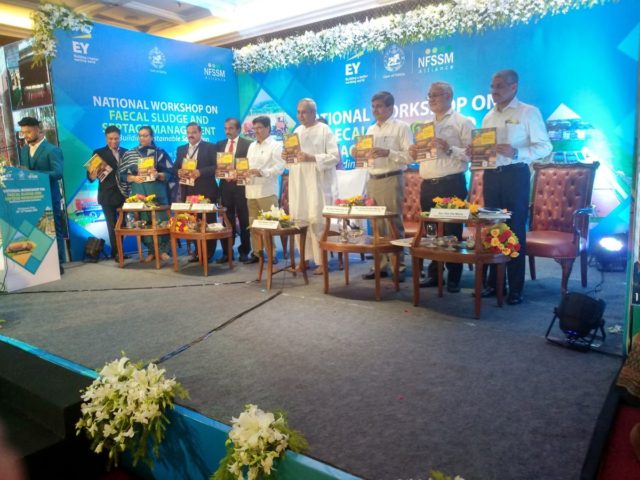
Bhubaneswar: Odisha Chief Minister Naveen Patnaik inaugurated six Septage Treatment Plants (SeTPs) in six cities of the state on Friday. Gracing a two-day workshop titled 'National Workshop on Faecal Sludge and Septage Management (FSSM)' here today, Patnaik inaugurated six Septage Treatment Plants in Bhubaneswar, Puri, Dhenkanal, Berhampur, Sambalpur and Rourkela through video conferencing. The SeTPs will treat the faecal sludge and septage before disposal in the respective cities, reducing the water pollution levels caused due to municipal liquid wastes. This apart, it is expected that the SeTPs will significantly help to reduce the pollution in the major rivers passing through these cities. The Faecal Sludge and Septage Management System were inaugurated through video conferencing in the six cities by Ministers Ashok Panda, Maheswar Mohanty, Surya Patra, MLAs Saroj Samal, Subrat Tarai and Raseswari Panigrahi, who were present at the cities respectively. 'I am happy to inaugurate the Septage Treatment Plants in our six large towns. We have successfully demonstrated innovative sanitation solutions and implementation models in large towns and now we shall be scaling up to cover the entire State,' said Patnaik while addressing the gathering. 'In our endeavour to meet the Sustainable Development Goal for universal access to safe and sustainable sanitation, I am happy to convey that the faecal sludge management services will be extended to all 114 Municipal areas in the State along with modern faecal sludge and septage management treatment facilities,' he added. As per a press note, 'Housing & Urban Development Department' of Odisha Government and the Odisha Water Supply and Sewerage Board (OWSSB) have taken these initiatives under AMRUT for construction of nine Septage Treatment Plants (SeTPs) at Bhubaneswar, Cuttack, Puri, Berhampur, Balasore, Bhadrak, Baripada, Sambalpur an Rourkela, and under 'Project Nirmal' at Angul and Dhenkanal by which more than 60% of the urban population of the State shall be benefitted. This apart, the Odisha Government has procured 86 cesspool vehicles for safe emptying transportation of faecal sludge in the urban areas. For cities with no treatment facilities at the moment, safe temporary disposal methods, such as the Deep Row Entrenchment (DRE) is being undertaken by the Urban Local Bodies (ULBs) in the State, the press note further mentioned.